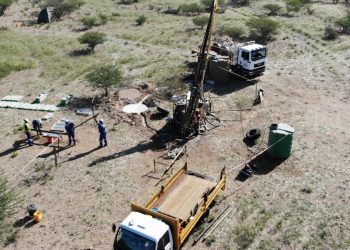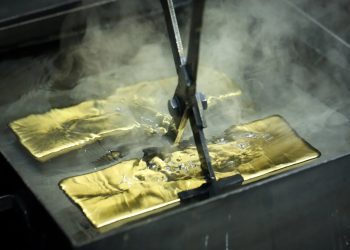
The Bank of Namibia says the absence of a domestic gold refinery will not hinder its plan to acquire gold as part of the country’s foreign exchange reserves, as international refining remains standard practice.
Deputy Governor Ebson Uanguta explained that only refined gold with a purity of 99.9% qualifies for inclusion in official reserves, which Namibia currently cannot produce locally.
“For us to be able to get that level of purity, we need to take it to the refinery. Do we have the refinery in the country? No. We need to take it somewhere. Do all countries that keep gold as part of their reserve have got refineries? No. They do it exactly where it must be refined,” said Uanguta.
He clarified that the gold to be acquired would not come directly from mines. Instead, only refined and certified gold would be eligible, in line with international norms.
“The kind of gold that we want to acquire is the one that we can use as part of reserves. We don’t just simply take the gold out of the mine and then it qualifies to be part of reserves. It will not,” he added.
Bank of Namibia Governor Johannes !Gawaxab said the finer details of the gold acquisition plan – including sourcing and operational arrangements – would be shared by the government in due course.
“All those questions are contained in the ministerial statement. It’s not that we don’t have the detail. But it’s just appropriate that it’s a prerogative with the minister. So that the lawmakers can also be fully informed,” !Gawaxab said.
The central bank recently announced its intention to begin purchasing gold as part of its broader strategy to diversify foreign exchange reserves. The goal is to allocate up to 3% of total net reserves to gold, following a growing global trend among central banks seeking to protect against inflation and currency risks.
“If you look at the trend of gold holding over the last three years, it has increased quite dramatically. So that is the trend that we are seeing,” Uanguta noted.
He added that holding gold brings strategic benefits beyond financial returns. “When you have got gold, at least it’s the reserves that belong to everyone. And the country can claim ownership of that gold,” he said.
Gold exploration company Osino Resources has ruled out plans to construct a gold refinery in the country for gold production from the soon to be developed Twin Hills project due to economic and regulatory hurdles.
The gold exploration company cited the unlikely economic viability and current regulations in both Namibia and South Africa, mandating gold refining through the Johannesburg-based Rand Refinery.







